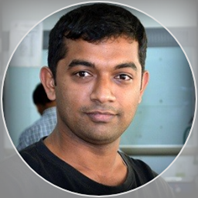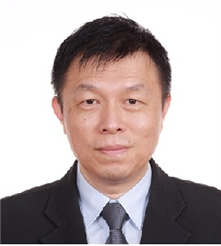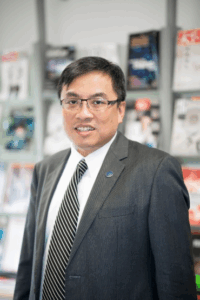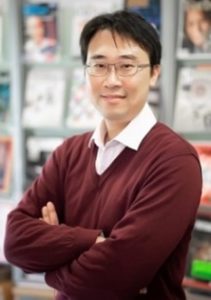Enhancing photoluminescence performance of perovskite quantum dots with plasmonic nanoparticles: insights into mechanisms and light-emitting applications
Gautham Kumar, Chien-Chung Lin, Hao-Chung Kuo and Fang-Chung Chen
 |
Dr. Gauthm Kumar is a researcher in the field of photonics, electronic materials, and semiconductor devices. He earned his PhD from National Yang Ming Chiao Tung University and is currently a postdoctoral researcher at the College of Semiconductor Research at National Tsing Hua University (NTHU). With expertise in quantum dots and semiconductor devices, Dr. Kumar is deeply engaged in advancing optoelectronic and semiconductor technologies. His current research focuses on developing HfO2-based systems and technologies for storage-class memory and in-computing memory applications. Additionally, investigates the fundamental principles governing the positioning of emerging energy technologies, exploring their long-term societal and environmental impacts. |
 |
Chien-Chung Lin received the Ph.D. degree in Electrical Engineering from Stanford University. He joined National Taiwan University in 2021 as the professor in the Graduate Institute of Photonics and Optoelectronics, and he was with National Chiao Tung University (NCTU) from 2009 to 2021. His research efforts are in design and fabrication of novel semiconductor optoelectronic devices. Since 2016, he has been jointly appointed by the Industrial Technology Research Institute (ITRI), where he participates and leads micro-LEDs and silicon photonics projects. Before NCTU, he worked for E2O communications and Santur Inc. in USA. He is a Fellow of the OPTICA. |
 |
Hao-Chung Kuo received the Ph.D. degree from the Electrical and Computer Engineering Department, University of Illinois at Urbana Champaign, Urbana, in 1999. Since October 2002, he has been a Faculty Member of the Institute of Electro-Optical Engineering, National Chiao Tung University, Hsinchu, Taiwan. His current research interests include semiconductor lasers, vertical-cavity surface-emitting lasers, blue and UV LED lasers, quantum-confined optoelectronic structures, optoelectronic materials, and solar cells. He has authored or coauthored more than 400 journal papers and holds 35 granted and 20 pending patents. He has received OSA (2012), IET (2012), SPIE (2013), IEEE (2015) and IAAM Fellow (2021). |
 |
Fang-Chung Chen is Distinguished Professor in the Department of Photonics (DoP), National Yang Ming Chiao Tung University. He received the B.S. and master’s degrees in chemistry from National Taiwan University, Taiwan, and the Ph.D. degree in Materials Science and Engineering from the University of California, Los Angeles. He has been with DoP since Feb. 2004. He has published more than 160 journal papers and 5 book chapters. Prof. Chen is Optica Fellow and Fellow of the Royal Society of Chemistry. His research interests include organic/perovskite electronics and materials, plasmonic materials, machine learning for materials screening, and low-dimensional nanomaterials. |
What aspect of your work are you most excited about at the moment?
We are extremely excited about our achievement in utilizing the localized surface plasmon resonance effects of metal nanoparticles to enhance the photoluminescence quantum yield of perovskite quantum dots to an impressive efficiency of 99%. We believe this result has transformative potential for next-generation optoelectronic devices.
How do you feel about Nanoscale Advances as a place to publish research on this topic?
Nanoscale Advances is a reputable platform for nanoscience research, providing an excellent opportunity for scientists and engineers to learn from each other’s work and gain cross-domain knowledge. Its interdisciplinary audience aligns well with the optoelectronic and materials science communities, enhancing visibility and impact. Additionally, as an open-access publication, it greatly facilitates knowledge sharing.
Can you share one piece of career-related advice for early career scientists?
Open your mind to listening and thinking. Developing multidisciplinary skills and actively pursuing collaborative opportunities will enhance the research impact in the fast-evolving field of nanoscale science.














